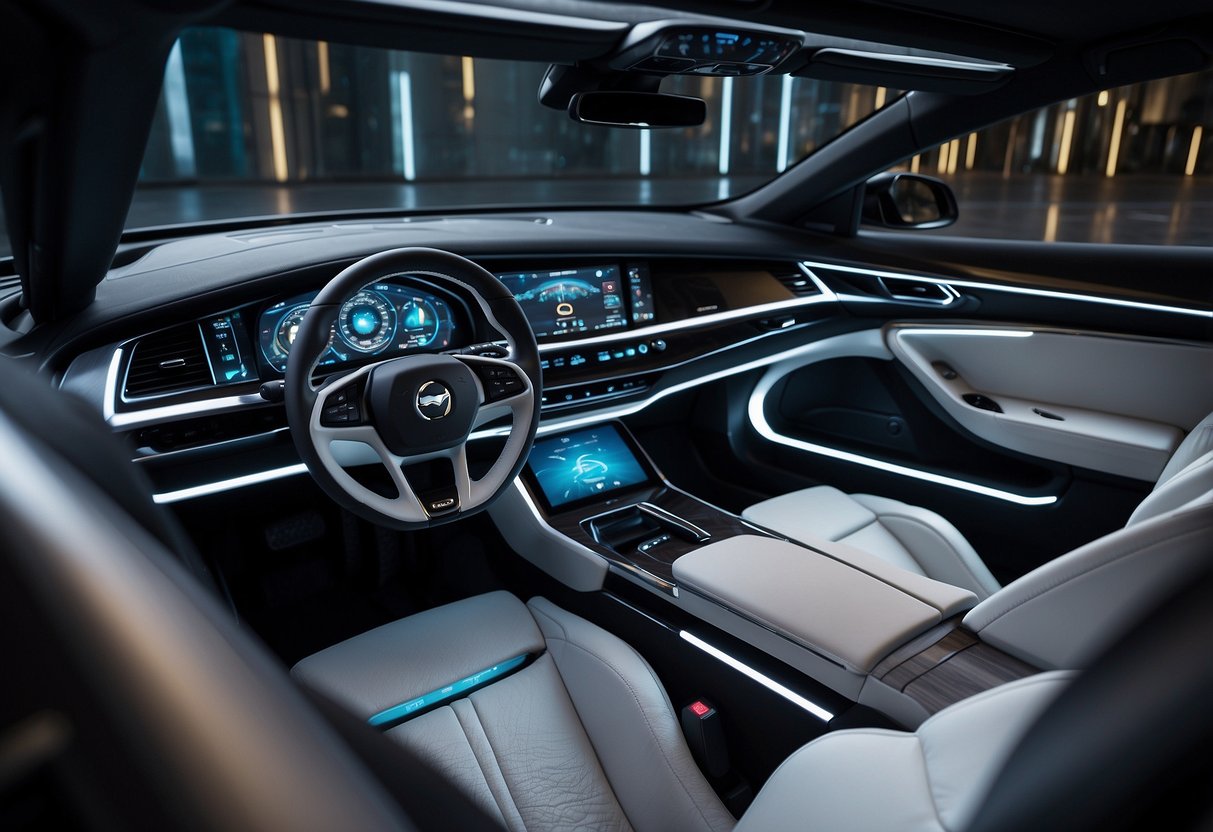
The Integration of Augmented Reality in Cars
Augmented reality in cars is transforming how drivers interact with their vehicles, from enhanced navigation to improved safety features.
AR for Enhanced Navigation and Safety
Augmented reality (AR) systems are now being integrated into vehicle windscreens, providing key navigation details directly in the driver’s field of view. This technology reduces the need to look away from the road to check a GPS, thus minimizing distractions and making navigation safer.
Some automakers are also exploring the use of augmented reality glasses, like the Xreal Air 2, to deliver heads-up display information. These glasses can overlay directions, speed, and other critical data, enhancing the driving experience.
By using AR, real-time data such as hazards, pedestrian crossings, and speed limits can be displayed, offering a comprehensive view of the driving environment. This creates a more informed and safer journey for everyone on the road.
Advancements from Major Vehicle Manufacturers
In 2024, significant strides in vehicle technology are showcased by major manufacturers. This year, Mercedes-Benz and the partnership of Hyundai and Kia lead the charge with groundbreaking innovations aimed at enhancing the driving experience and safety.
Mercedes-Benz’s Latest Innovations
Mercedes-Benz continues to push the envelope with its state-of-the-art advancements. One of the standout features introduced this year is the new MBUX Hyperscreen, a full-width, high-resolution display that spans across the entire dashboard. This system integrates navigation, entertainment, and vehicle controls into one seamless interface.
The E-Active Body Control suspension system, which adjusts each wheel independently, enhances comfort and handling by counteracting road imperfections and body roll during turns. Mercedes’ Level 3 autonomous driving capability offers hands-free driving in specific highway conditions, adding a layer of convenience and safety not seen before.
Innovative Technologies from Hyundai and Kia
Hyundai and Kia continue to revolutionize mainstream vehicle technology with several key innovations. Their latest Smart Sense Safety Suite includes advanced features such as highway driving assist, which maintains lane position and adjusts speed based on traffic conditions. The partnership also unveiled its impressive Hydrogen Fuel Cell Powertrain for longer range and reduced emissions.
One notable advancement from Kia is the improved EV6, featuring ultra-fast charging capabilities that provide 60 miles of range in just 5 minutes. Both Hyundai and Kia are prominently showcasing their commitment to sustainability by expanding their line-up of fully electric vehicles, aiming to make electric driving more accessible and practical for everyday consumers.
Utility Meets Innovation in Electric Trucks and SUVs
Technological advancements in electric trucks and SUVs are redefining their utility and innovative features. Innovations in design and increased variety in model options offer consumers a blend of practicality and modern technology.
Evolving Designs of Electric Pickup Trucks
Electric pickup trucks are evolving quickly, combining rugged utility with modern innovation. The Chevrolet Silverado EV exemplifies this trend, boasting a significant range, rapid charging capabilities, and an infotainment system optimized for both work and leisure. Additionally, the RAM 1500 REV incorporates advanced towing and hauling technologies, positioning it as a strong competitor in the growing market.
Manufacturers are prioritizing aerodynamics and materials to enhance overall efficiency. For instance, lightweight materials and improved aerodynamics help increase range and performance. These electric trucks also include features like multifunction tailgates and expanded storage options, addressing the needs of professionals and adventurers alike.
The Expansion of Electric SUV Options
Electric SUVs are becoming increasingly diverse, catering to a broad audience with varying needs. The RAMcharger is a notable entry, designed to combine off-road capability with cutting-edge electric technology. It offers ample cargo space, advanced driver-assist systems, and connectivity features that align with modern consumer expectations.
New models from established brands are entering the market, making electric SUVs more competitive. These vehicles are now coming with adjustable suspension systems, allowing drivers to switch between on-road comfort and off-road ruggedness seamlessly. Moreover, the use of modular battery systems is providing greater flexibility in terms of range and performance.
As electric SUVs continue to evolve, they promise to deliver both durability and technological sophistication, appealing to families and adventure enthusiasts alike.



